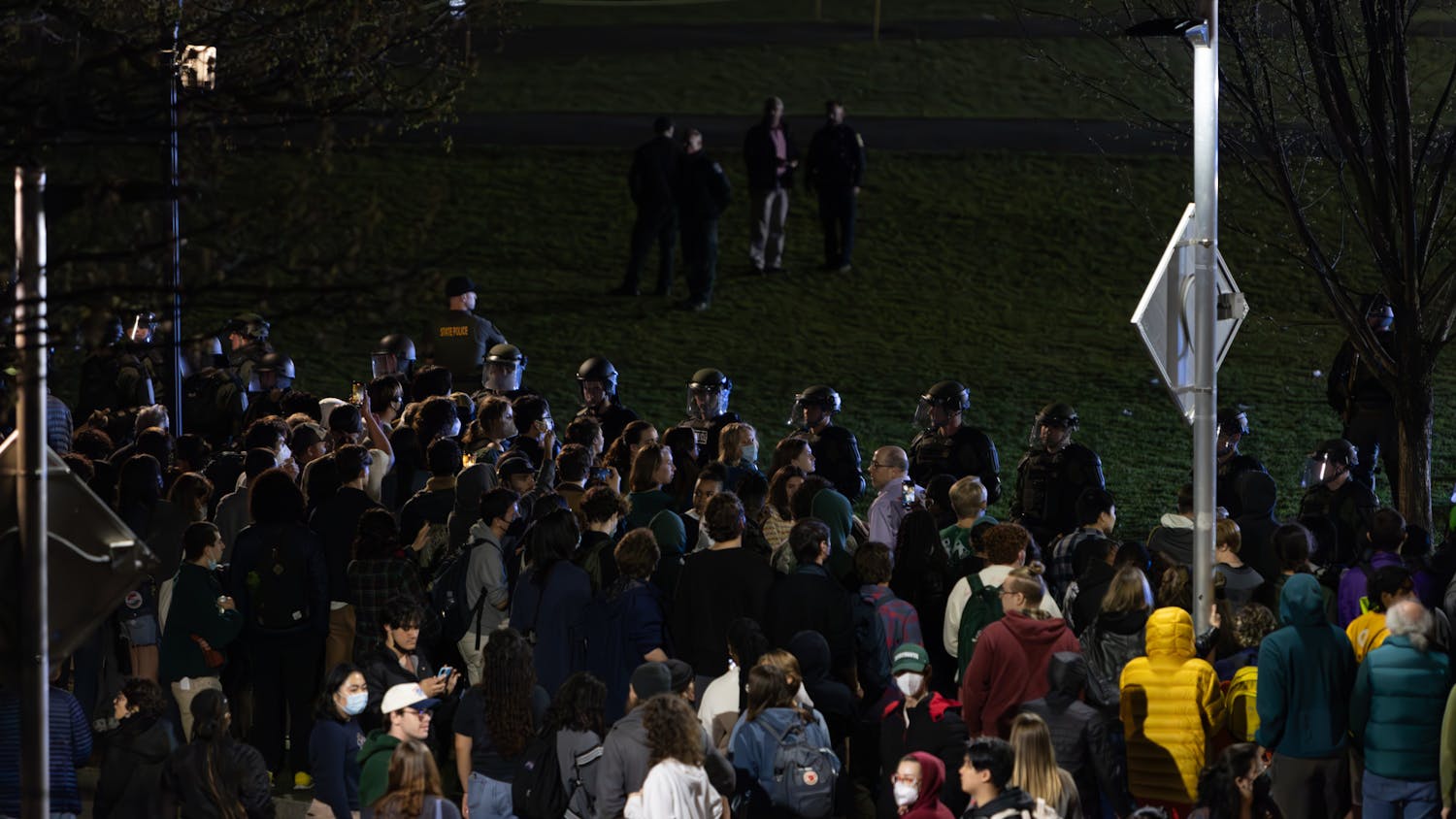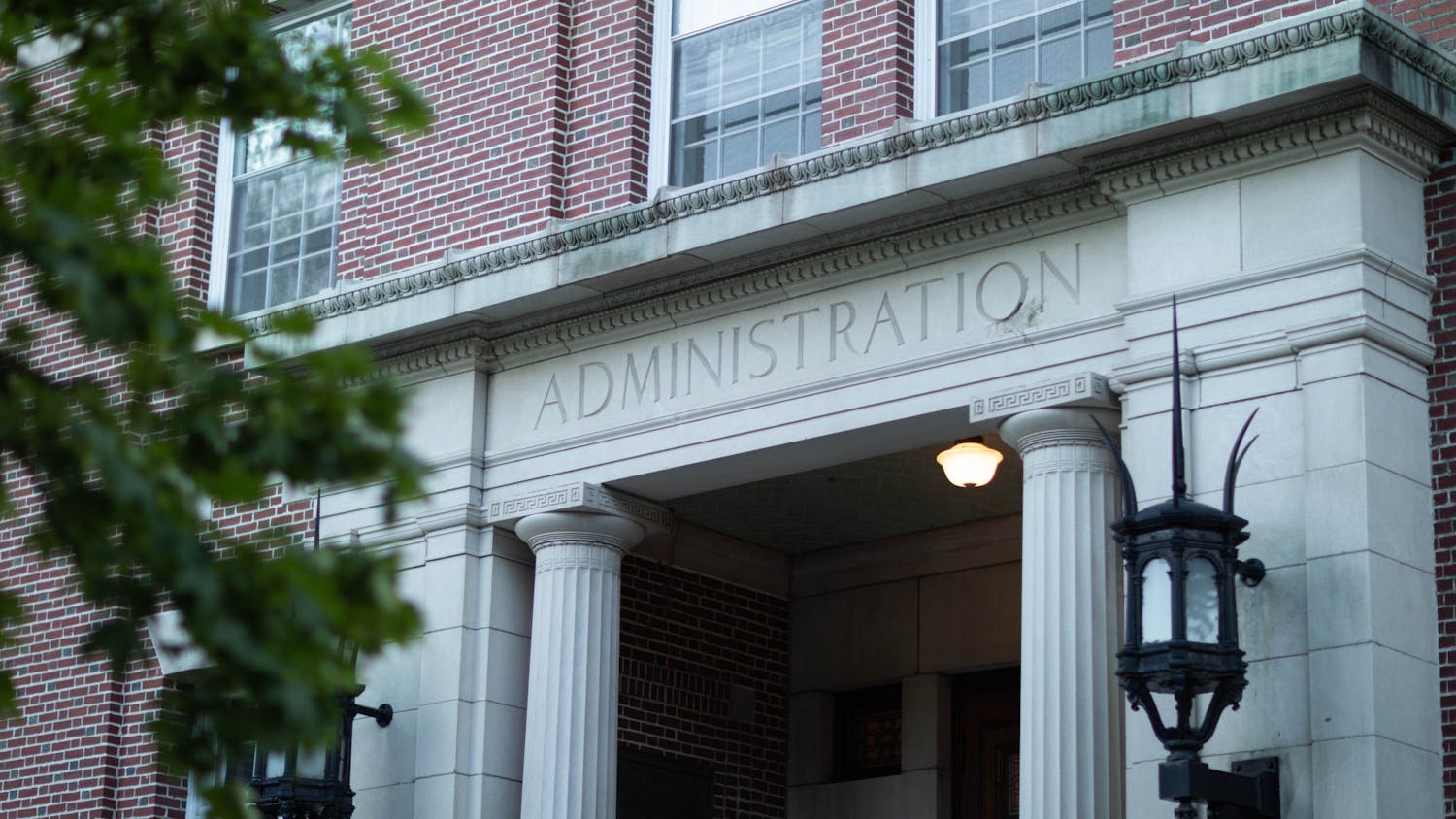Dartmouth alumni in the armed forces are maintaining their routines while preparing themselves for sudden military deployments as the United States battles worldwide terrorism.
Headlines describing the United States' war on terrorism have flooded television screens and newspapers for the past three weeks, but those on active duty report that their roles on base have not changed dramatically.
Lieutenant Eric Eckberg '99 told The Dartmouth, "The biggest change is just the amount of security around the post. That just means it takes a little longer to get on post ... also [that] I don't forget my military ID card."
Eckberg is stationed at Fort Drum, NY, where he serves as a fire direction officer for a section of the Tenth Mountain Division. His battery is slotted for a six-to seven-month rotation in Kosovo as part of the ongoing NATO peacekeeping force there. His four-year engagement ends in November of 2003.
Due to the high costs of training soldiers for peacekeeping missions, Eckberg is confident that his unit's deployment will not change if war breaks out in Afghanistan.
Since Sept. 11, Eckberg has noticed an increase in anger and desire to engage in combat among his troops, along with frustration at America's currently unidentified enemy. Anti-Islamic sentiments have also surfaced in Eckberg's artillery battalion.
While at Dartmouth, Eckberg was the sole member of his class to participate in the Army ROTC program and take a commission upon graduating.
"The [Sept. 11] terrorist attacks have not changed how we train or the amount that we train," Eckberg told The Dartmouth. "I am confident in my battery's training and I know we'll be successful."
Lt. Joseph Scott '00 is a launcher platoon leader at Fort Bliss, Texas. In the event of war, he is responsible for controlling his platoon's missiles. While "nothing major" has taken place on base since the terrorist attacks, his troops have reviewed mobilization procedures and are "getting ready to go."
Scott also noted a marked increase in the level of security at Fort Bliss.
As the only member of his class to participate in Dartmouth's small ROTC program, Scott credits ROTC instructor Captain Gregory Goth for allowing a great deal of flexibility in the program.
Main training events were held at Norwich University, which Dartmouth students would participate in once a term.
Scott served as associate editor for The Dartmouth and graduated with a history major. "I've had a chance to brief my superior officers on history," he said.
Cpt. Cris Kuechman '97 recently became a maintenance and logistics officer with the Immediate Ready division of the Army reserves. While now leading the life of a civilian, Kuechman said that her colleagues remaining in the Army are under a "much higher state of alert ... they've had to reevaluate their level of complacency."
Of her ROTC experience, Kuechman said, "I got a feel for some of the things that were expected of me in the Army ... I learned the basics of military life."
Alumni Relations was not able to provide figures on the number of graduates who have gone into military service.



